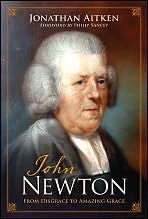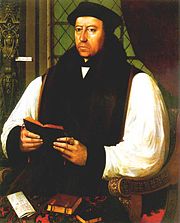Part 1 is here, part 2 is here.
In your opinion, is it going to take another “Great Awakening” for religious liberty to be preserved?
MBY: It wasn’t the “Great Awakening” that gave us religious liberty in the first place, so I am not sure what the question entails. Moreover, if by “Great Awakening,” it is assumed that evangelicals, understood as the descendants of the magisterial reformers, have been proponents of religious liberty, that is in direct opposition to the historical record.
TW: While I always hope for another “Great Awakening,” I do not think this is necessary for religious liberty to be preserved. I could be wrong…
JGD: Religious liberty is important because it is a means to an end. It is the preserving agent in a culture that gives a platform for the gospel. That is, it provides an unimpeded avenue for the feet of those who bring the good news to travel as churches seek to take the gospel to all nations. However, it is not essential to that task. The work of the Great Commission will one day come to a fulfilled end regardless if there is a nation on earth that continues to extend liberties for the equal proclamation of ideas. So while I hope and will work to preserve religious liberty, and see such work as good and worthy, I don’t place my hope in future “awakenings” to accomplish this preservation. We should long and pray for such a movement of God’s Spirit, but press on nonetheless if he chooses the path of suspended freedoms, persecutions, trials, and even death to exalt the gospel of Christ—as he has done at various points in history. The end goal is the gospel to the nations for the fulfillment of Revelation 5:9-10—people from all nations magnifying the Most High God for all of his worth. Religious liberty is still the best means by which to expedite that day, in my view, but not ultimately necessary.
Knowing that the editors of this volume have spent considerable time outside the United States, do you have thoughts on questions 2–6 as they may relate to churches in the UK or elsewhere?
TW: I will leave this to Yarnell.
MBY: In the United Kingdom, there has been a transition over time from religious intolerance to religious tolerance to religious liberty. Unfortunately, now, the UK, as in much of Western Europe, religion itself is largely ignored by the non-immigrant populace. The biggest problem facing Western European societies is the growth of militant Islam, which has no regard whatsoever for religious liberty. Dr. Emir Caner’s essay addresses this problem and I refer you to that essay.
JGD: My hopes for pastors who read this volume regardless of their place or country of service remain the same. Obviously, this volume speaks to some of what could be instead of what is in countries where Communism still prohibits the free exchange of ideas or Islam snuffs out the light of truth with lies and false teachings regarding Jesus Christ and our God who is both merciful and just. However, in the secularized nations of the world where it is still legal to gather and preach and worship Christ, I would hope this volume might serve to enliven and encourage the work there—not only for the thoughts conveyed in this volume, but again for the introduction of the reader to the authors of these thoughts and their respective ministries and work in the world.
Both Professors White and Yarnell mention speaking prophetically to the government. Could either of you comment on the various forms this could take? Should we write letters, write editorials, make resolutions, seek to build relationships—what method is most effective?
TW: Yes, yes, yes, and yes. I think we should do what we can to voice biblical truth to our government leaders. While we seek to build relationships, we must do so not seeking our own gain or political positions, but with a desire to speak God’s truth to a troubled nation. We must be prophets crying out in the wilderness—faithful to accurately communicate God’s Word.
MBY: I believe Christians should speak prophetically to the culture. The exact method may vary with the context, however, the Scripture puts an emphasis on verbal proclamation and that method is, as a result, essential and non-negotiable.
JGD: Yes we should live as responsible and active citizens. A biblical understanding of this, I believe, encapsulates not only everything from paying taxes, respecting the governmental authority structures and its laws but also praying for our leaders and petitioning them in the ways in which you suggest. However, this ultimately is not going to be the most effective method for change. Only through person by person, leader by leader, citizen by citizen encounters with the power of the gospel that brings New Testament conversion and rebirth will our country be transformed in any way that is truly effective.
Many NT scholars are suggesting that the assertions of Paul (and the other NT authors) that Jesus is Son of God, Lord, and Savior would have had political connotations, since Caesar was viewed as, in a sense, son of (a) god, lord, and savior. In this line of thinking, Paul is being overtly political in that he is urging Christians to reject the Roman Imperial cult and give their allegiance to Christ alone, even if it means facing the sword. The Christians did this, leading to Tertullians’ assertion, which is quoted on the dedication page of First Freedom: “The blood of the martyrs is the seed of the church.” Is there a tension between being reckoned as sheep for slaughter on behalf of Christ, the blood of the martyrs growing the church, and demanding religious liberty?
TW: I will allow others to speak to this one.
MBY: Christianity has always had a political dimension. The recent awakening within the NT guild to this long-standing reality is belated but good to see. Political theology has roots in both the OT and the NT.
And yet, not all political theologies are worthy of our approbation, for they often have little foundation in the biblical text rightly interpreted. Good political theology must take seriously the priority of the NT and the example of the cross. Political power is ever to be practiced in the giving away of one’s own rights and the elevation of the other in the name of Christ.
One last response to your last question: Religious liberty is already granted by God, so its suppression is a rejection of both natural law and revealed law; in other words, we don’t have to demand religious liberty. Religious liberty is already granted by the God who granted us our freedom to respond to him. We don’t have to demand religious liberty: God has already granted us religious liberty, and we must live in it and refuse to suppress it.
JGD: See my answers to number 1 and number 6 above regarding apparent tensions such as this as well as the relationship between martyrdom and religious liberty.
————-
Many thanks to Malcolm Yarnell, Thomas White, and Jason Duesing, editors of the new book from B&H, First Freedom. For more on these issues, I encourage you to check out the book:
 I was pleasantly surprised by Russ Moore’s contribution, perhaps because I felt such kinship with it. His chapter sounds many of the same notes I tried to hit in the paper I presented at ETS last fall, “The Church Militant and Her Warfare,” which is posted here, and which is set to appear in a coming issue of SBJT.
I was pleasantly surprised by Russ Moore’s contribution, perhaps because I felt such kinship with it. His chapter sounds many of the same notes I tried to hit in the paper I presented at ETS last fall, “The Church Militant and Her Warfare,” which is posted here, and which is set to appear in a coming issue of SBJT.
I think the most important thing we can do to transform society is invest ourselves in the ministry of the local church with whom we have entered into solemn covenant before the Lord, which you can read more about in my earlier post and in the paper. May the Lord visit this land with another Great Awakening!

 Last night I spoke on Thomas Cranmer at the
Last night I spoke on Thomas Cranmer at the 







